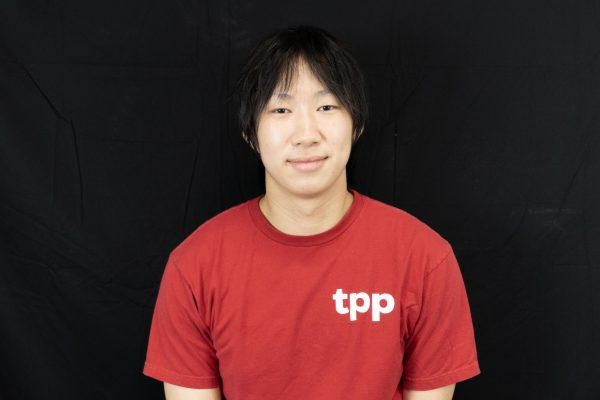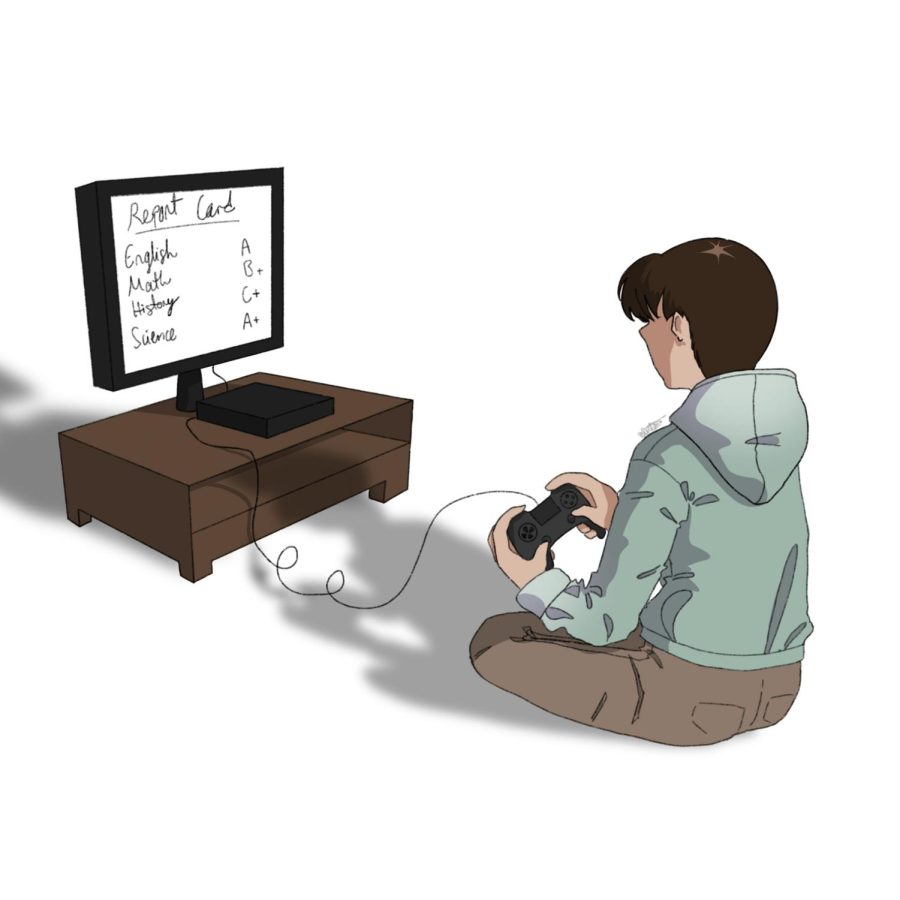Play for an A
Possibly unethical studying tips
Student “gaming the system” in order to get good grades. He follows these test strategies.
It’s midnight.
You have final exams tomorrow.
You want to study using your time in the most efficient way.
You stumble upon my article.
Picture Superiority Effect
I like looking at pictures. I don’t like looking at words.
A major problem I’ve seen with trying to remember lengthy information is the practice of rereading material. In my experience, the more I read my notes, the easier it gets to read them. When it feels easier to read, I assume I understand it. The truth is, I don’t. I’ve only gotten better at reading it.
Rather than trying to reread material, I find that converting a concept into an image cements the idea into my memory. For example, I associate Martin Luther’s revolutionary 95 Theses with a cartoon of a paper nailed to a church door. Whenever I need to reference that idea, my brain automatically references the image instead.
Don’t just take my word for it. A study by the University of Western Ontario found that “pictures of objects were recalled significantly better than their names.” The reason why: pictures are more readily coded and stored in memory than words.
After all, a picture is worth a thousand words.
Quizzing
Although it may seem I’m hating on using text to study, what’s more important is how you use words to learn.
An effective test strategy is to quiz yourself. Come up with the answers on your own instead of just reading them. Part of effective studying should result in understanding the subject, not just passing the test. Quizzing forces you to interpret the underlying ideas about the material rather than just skimming the yellow-highlight on your notes.
Even if you get every question wrong, it’s still beneficial. You come to question yourself into thinking more about the topic. Why was my answer choice wrong? Why is this answer choice right? You learn, and you adapt.
Practice exercises are useful for this because they get you into the right mindset. When I have to write a DBQ in World History, I do sourcing practice the day before. Practice, reviewing and repeating a style of a test helps me become familiar with the formats, techniques and frameworks–making it more comfortable on the day of the real exam,
It’s like the difference between studying how to shoot a basketball and actually going out to shoot one–one’s clearly more effective than the other.
Feynman Method
Practice makes perfect, but that’s not the only way to perfection.
That’s where The Feynman Method comes into play: teaching yourself by teaching the topic to someone else.
Richard Feynman’s coined learning technique consists of a three-part process: studying for a bit, putting the notes away and verbally explaining the study material to someone else. When he’d fail to recall something or explain it well, he’d make a note of it so he could re-study that material later.
Feynman believed that if you could teach the material to a peer, your understanding was sufficient. But if you could explain a concept in simple terms that even a child could understand, you had mastered that material.
I’ve found that I learn more when trying to teach others. Once I break down what I know about a subject and explain it in sections, I am forced to understand it even better. For example, in my English class, when I have to learn 90 vocab words, I explain each word to a friend by giving a simpler synonym. This reinforces the definition of these terms into my memory and helps me perfect them.
It’s extremely easy to mistakenly think you understand a concept but it becomes apparent how many holes there are in your comprehension when you teach it to someone else.
Gaming the system
I’ve given you the studying techniques. Now it’s time to game the system.
At the center of getting an A isn’t studying the material; instead, it’s in the classroom.
Success in receiving good grades relies on getting a feel for each individual teacher and what they value most, what they consider acceptable effort, where they’ll notice that you went above and beyond and what they tend to give more leeway in an assignment. Any time you’re given an open-ended question–even when asked a basic “right” or “wrong” answer–teachers have complete discretion in how they evaluate a response and what they’ll consider “correct.”
Some teachers prefer an avalanche of information in the response to a question so that you cover all possible bases when giving an answer. Others only look for their personally-tailored version of the correct answer; for these classes, it’s essential to pay attention not just to the information, but also to how the teacher phrases this information so you can recognize it or reproduce it on a test.
During my freshman HADV English I class, I remember explaining Mercutio’s famous quote in Romeo and Juliet: “A plague o’ both your houses!” I understood that my teacher preferred answers that matched what she believed was the “true answer.” Thus, I phrased my response by paraphrasing her lecture rationale.
I’m not advocating for “manipulating the system” over learning the material. Mastering the subject in question will be the difference between passing and failing 100 percent of the time, but knowing the audience is often the difference between an A and a B.
School is like a game of poker. My advice plays the opponent, not just the cards.
Your donation will support the student journalists of Bellaire High School. Your contribution will allow us to purchase equipment and cover our annual website hosting costs.




Khang Nguyen • Dec 21, 2022 at 12:01 am
gave me As 10/10
bring back ash ketchum to pokemon • Dec 20, 2022 at 11:49 pm
The Feynman Method fr works!!! After reading this article, I got a good grade on my final!✌️
Tejeshwar • Dec 20, 2022 at 11:38 pm
Amazing article Loved every bit!!!!
Kevin Li • Dec 20, 2022 at 11:32 pm
Super creative title and tone of article! Really interesting!